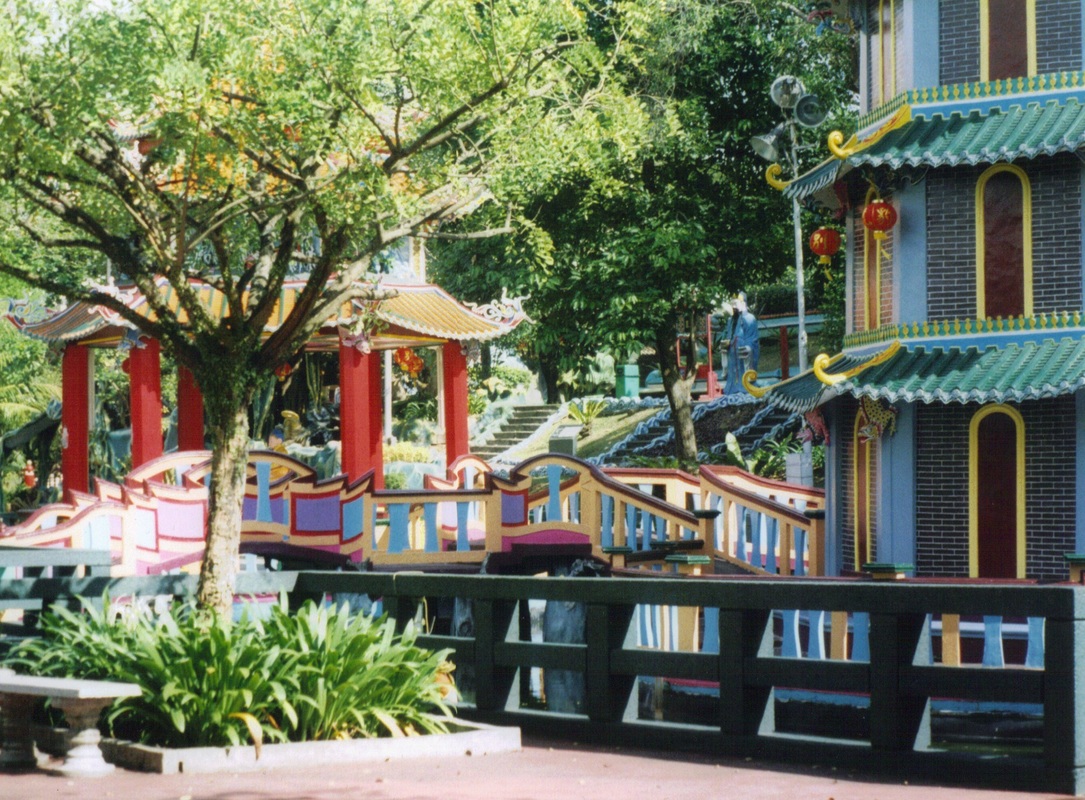Singapore
My time in Singapore
I made my first visit to Southeast Asia in the January of 2004. I was in the third year of my BA in Politics at Durham University and had elected to take a double module dissertation. The dissertation could be on the subject of our choice, the main limitation being that we needed to have a member of staff agree to supervise us. It was recommended that we begin by choosing our favourite subject. Mine was arguably Political Thought; I love philosophy and really enjoyed writing my essays on Plato and Machiavelli, but I wanted a dissertation that I could really sink my teeth into. I had begun a degree in Social and Political Science before converting to single honours Politics and my first year spent in the Sociology department had created a desire to get out into the field. Initially International Relations had been my least favourite subject and I thought International Political Economy was terribly dry but I had slowly begun to realise the phenomenal significance of the topics we studied and particularly liked the teaching of one of the lecturers who was also my seminar leader.
Dr Gordon Cheung agreed to take me on as his student and suggested that I took at the newly industrialised nations of Southeast Asia (Hong Kong, Singapore, South Korea and Taiwan). I'll confess that my choice was largely determined by my efforts to manipulate my parents. Given that English is the official language of Singapore and that it was famous for being safe and clean, I thought my best chances of getting the bank of mum and dad to fund a research project lay with the island state. I told Gordon my choice and we outlined the project based on the balance between government and market forces.
I spent ten days in Singapore. Gordon put me in touch with Dr Henry Yeung of NUS and he in turn put me into contact with his students Winston, Selene and May who gave me a wonderful introduction to their home. I was fascinated with everything from the card operated light in my hotel room (a Singaporean invention) that I have since seen everywhere to the food I ate at the Hawker markets. I allowed myself to explore every avenue and took copious notes and collected innumerate material wherever I went. I lacked direction and objectives but this saw me return with information on everything from business to culture. When it came to analysing my material I soon realised the significance of technology. The final dissertation was entitled 'Singapore's Technological Growth: The Government and Market Debate' and covered the questions of whether government intervention was still necessary for technological growth and whether one could speak of a Singaporean model for development that could be applied to other nations.
Dr Gordon Cheung agreed to take me on as his student and suggested that I took at the newly industrialised nations of Southeast Asia (Hong Kong, Singapore, South Korea and Taiwan). I'll confess that my choice was largely determined by my efforts to manipulate my parents. Given that English is the official language of Singapore and that it was famous for being safe and clean, I thought my best chances of getting the bank of mum and dad to fund a research project lay with the island state. I told Gordon my choice and we outlined the project based on the balance between government and market forces.
I spent ten days in Singapore. Gordon put me in touch with Dr Henry Yeung of NUS and he in turn put me into contact with his students Winston, Selene and May who gave me a wonderful introduction to their home. I was fascinated with everything from the card operated light in my hotel room (a Singaporean invention) that I have since seen everywhere to the food I ate at the Hawker markets. I allowed myself to explore every avenue and took copious notes and collected innumerate material wherever I went. I lacked direction and objectives but this saw me return with information on everything from business to culture. When it came to analysing my material I soon realised the significance of technology. The final dissertation was entitled 'Singapore's Technological Growth: The Government and Market Debate' and covered the questions of whether government intervention was still necessary for technological growth and whether one could speak of a Singaporean model for development that could be applied to other nations.

